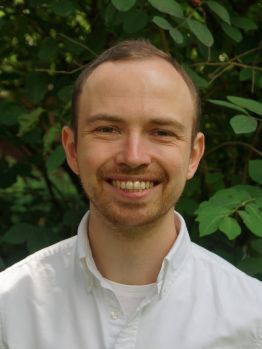Semi - Digital Disputation
Due to the pandemic and the worldwide travel restrictions, the Disputation will be held semi - digital. An Audience is welcome to attend the Trial lecture and Disputation (physical attendance) in the Department after registering below. There is a limited seating capacity and the registration will be closed with no further notice, when the capacity limit has been reached. Only those who sign up are allowed physical attendance.
The Disputation will be live streamed for everyone else.
The livestream will be activated 15 minutes before the Defence starts.
NB! Ex Auditorio questions can only be asked by Audience present in the Auditorium.
Order the Dissertation as PDF from this email address with the name of the Candidate: a.c.gartner@kjemi.uio.no
Printed Dissertations will be available in Auditorium 1.
Registration for local attendance
Trial lecture
11th. of Sept. 10:15 AM, Auditorium 2
‘Controlling the Morphology of Block Copolymer Micelles’
The livestream of the lecture will be activated 15 minutes before the Trial lecture starts.
Conferral summary
Self-assembly – «selv-bygging» - er en mulighet for å lage nanopartikler av ulike typer. Molekylene er «programmert» for å bygge større nanostrukturer av seg selv, uten menneskelig påvirkning. Dette kan brukes i forskjellige anvendelser, fra medisin til ingeniørvitenskap.
I denne avhandlingen har vi sett på hvordan molekylene beveger seg når de er satt sammen i forskjellige nanostrukturer og hvordan molekylære interaksjoner påvirker hvordan molekylene kan frisettes fra disse.
Main research findings
Self-assembly represents an easy way to create large quantities of various kinds of nanoparticles. Small molecules are “programmed” to self-organize into nanostructures, without external manipulation. These nanostructures are of great commercial interest, not only as drug delivery vehicles but also as components of complex fluids, cleaning materials and other everyday products. In this dissertation, we investigated fundamental laws governing self-assembly. As a model system, we used amphiphilic polymer molecules carrying both water-repellent and water-compatible blocks, which spontaneously self-organize into so-called “micelles” when dispersed in water. We then examined how the self-assembly of these micelles was affected when we blended polymers of different length or when we let them crystallize. We also discovered a new mechanism how molecules move between different micelles. The results of this thesis will help to create more kinds of useful nanoparticles in the future. In addition, we investigated self-assembled structures, so-called “fibers”, of an antimicrobial peptide, a potential new antibiotic. The fibers proved to be extraordinarily stable which is helpful insight for the further development of this drug candidate.
